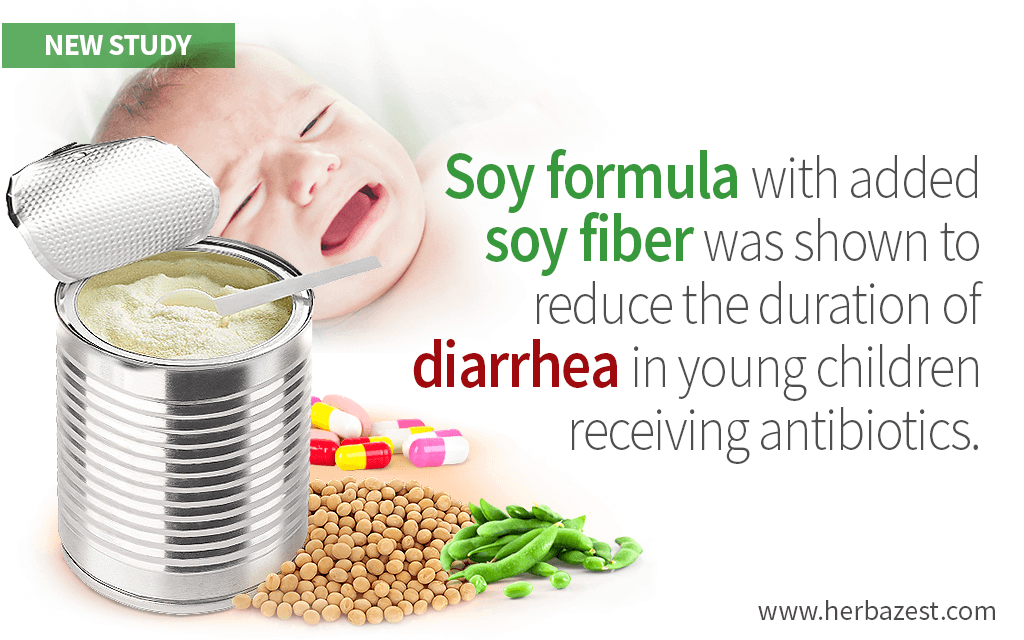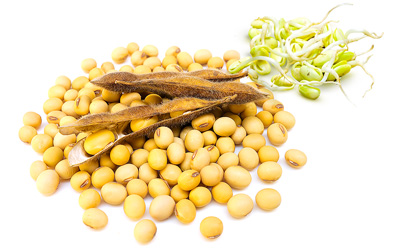Diarrhea is one of the most common side effects of antibiotic treatment. While it generally does not pose a significant threat to most adults, children and the elderly are considered to be at higher risk of developing dehydration.1
Generally, mothers of infants and toddlers receiving antibiotics often resort to giving them bland foods, such as bananas or rice, with various levels of success. Interestingly, soy fiber has been previously shown to help manage diarrhea, making it a potentially beneficial addition to children's formula.2
This study was conducted to examine the effects of soy formulas with and without soy fiber in children with diarrhea from antibiotics.
The Study
This masked, randomized parallel study was a collaboration between researchers from the University of Arkansas for Medical Sciences (Arkansas, USA), The Center for Human Nutrition (Ontario, Canada), and Abbott Laboratories (Ohio, USA). The results were published in The Journal of Pediatrics.
The participants were 45 infants and toddlers (5 to 18 months old) diagnosed with otitis media and experiencing diarrhea while receiving antibiotics. They were randomly assigned to two groups: children in the control group received a soy formula without added fiber, while children in the experimental group received a soy formula with added soy fiber (average fiber intake of 6.53 grams per day).
Formulas constituted about 30% of their caloric intake and were taken for 10 days.
Medical evaluations were done on days 1 and 11, whereas parents were asked to maintain a daily record of dietary intake; antibiotic use; stool frequency and consistency; and spit-up and vomiting episodes.
The Results
The primary outcome of this study was the duration of diarrhea. In the group of children fed soy formula with added fiber, the mean duration of diarrhea was 25.1 hours in contrast to 51.6 hours in children fed regular formula.
For reference, the duration of diarrhea in hours was calculated as the time from the first feeding of the formula to the last diarrhea episode that was not followed by another diarrhea episode for at least 24 hours.
The secondary outcome included spit-up and vomiting episodes. The experimental group had a higher incidence of spit-ups or vomiting just on the first day of the study. For the rest of the study period, there were no significant differences between the groups.
What Does this Mean?
This study provides evidence that soy formula with added soy fiber can significantly reduce diarrhea triggered by antibiotic intake.
This is good news both for the mothers of infants and toddlers as well as for their physicians. Having a simple and nutritious formula capable of shortening the duration of antibiotic-associated diarrhea is not only important for overall treatment outcomes, but also for the parents' and children's physical and emotional comfort.
Other herbs that may help treat diarrhea include banana, rice, arracacha, and blueberry leaves.
Sources
- The Journal of Pediatrics, Randomized clinical trial of soy formula with and without added fiber in antibiotic-induced diarrhea, 2002
Footnotes:
- Mayo Clinic. (2019). Dehydration. Retrieved September 23, 2020 from https://www.mayoclinic.org/diseases-conditions/dehydration/symptoms-causes/syc-20354086
- Clinical Pediatrics. (1997). Use of soy fiber in acute diarrhea in infants and toddlers. Retrieved September 23, 2020 from https://pubmed.ncbi.nlm.nih.gov/9078414/





